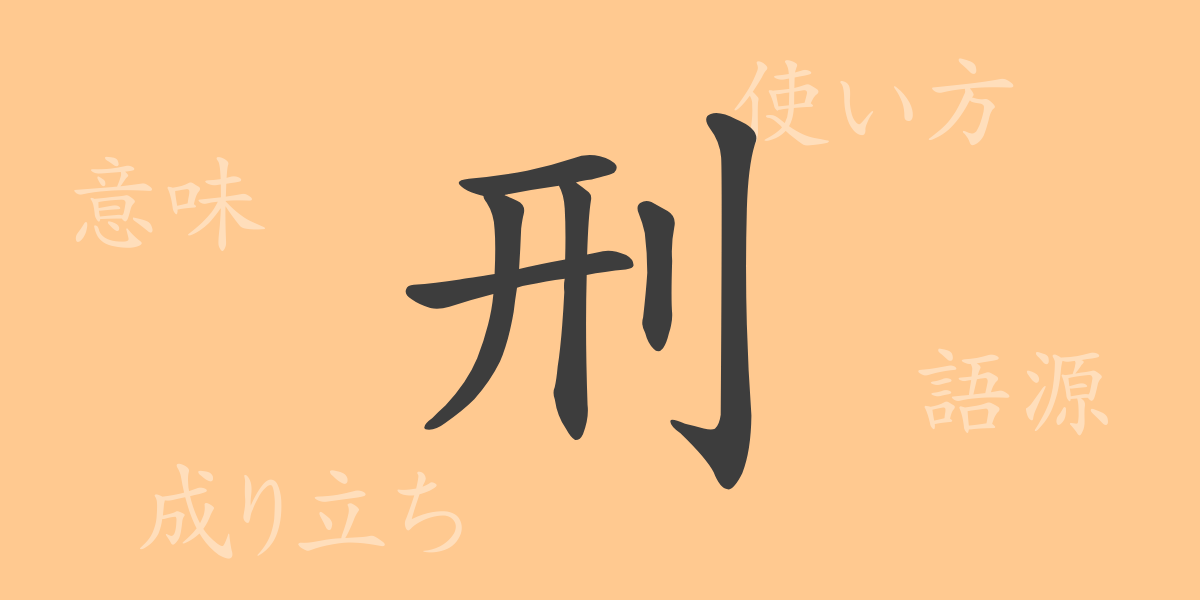The kanji deeply rooted in Japanese culture encapsulate rich histories and philosophies within each character. The character “刑(けい)” is no exception. Symbolizing law and order, this kanji is frequently used in daily life and legal contexts in Japan. This article delves into the origins, meanings, uses, and even idioms and proverbs associated with “刑(けい),” uncovering its full scope.
Origin of 刑(けい) (Etymology)
The kanji “刑(けい)” traces its origins to ancient China. As a pictographic character, it is believed to depict tools used for punishment or the act of binding a criminal. Over time, it became an important character representing the concept of punishment and was introduced to Japan along with Chinese legal culture.
Meanings and Uses of 刑(けい)
The kanji “刑(けい)” primarily signifies punishment or penalties. In legal contexts, it often refers to legal sanctions or punishments for crimes. Occasionally, it is used in a moral context to denote reprimands or lessons.
Readings, Stroke Count, and Radical of 刑(けい)
The kanji “刑(けい)” has specific features in terms of its readings, stroke count, and radical:
- Readings: The on’yomi (Chinese reading) is “ケイ,” and there is no kun’yomi (Japanese reading).
- Stroke count: The total stroke count for “刑(けい)” is 6 strokes.
- Radical: The radical for “刑(けい)” is “刂(りっとう),” which is associated with cutting or blades.
Idioms, Expressions, and Proverbs Using 刑(けい)
There are numerous idioms, expressions, and proverbs that include “刑(けい),” each carrying deep meanings. Here are a few examples:
- 「刑(けい)を受(う)ける」 – To receive legal punishment for a crime.
- 「懲役刑(ちょうえきけい)」 – A punishment involving incarceration with forced labor for a set period.
- 「死刑(しけい)」 – The death penalty, the heaviest form of punishment that takes the criminal’s life.
- 「刑(けい)が確定(かくてい)する」 – When a sentence is finalized in court, with no further legal proceedings.
- 「刑(けい)は免(まぬか)れない」 – An expression meaning that punishment for a committed crime is unavoidable.
Conclusion on 刑(けい)
The kanji “刑(けい)” is a crucial character symbolizing the concept of punishment in both legal and moral contexts. Its use has remained consistent from ancient times to the present, playing a fundamental role in Japan’s legal, cultural, and social frameworks. Understanding the meaning embedded in this single character enhances not only one’s grasp of the Japanese language but also provides insights into Japan’s legal system and culture.

























